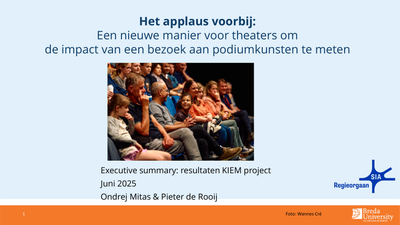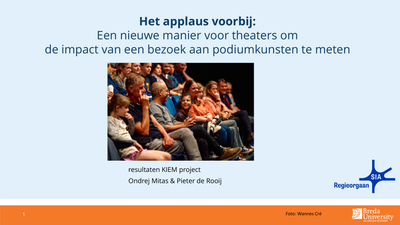A local operating theater ventilation device to specifically ventilate the wound area has been developed and investigated. The ventilation device is combined with a blanket which lies over the patient during the operation. Two configurations were studied: Configuration 1 where HEPA-filtered air was supplied around and parallel to the wound area and Configuration 2 where HEPA-filtered air was supplied from the top surface of the blanket, perpendicular to the wound area. A similar approach is investigated in parallel for an instrument table. The objective of the study was to verify the effectiveness of the local device. Prototype solutions developed were studied experimentally (laboratory) and numerically (CFD) in a simplified setup, followed by experimental assessment in a full scale mock-up. Isothermal as well as non-isothermal conditions were analyzed. Particle concentrations obtained in proposed solutions were compared to the concentration without local ventilation. The analysis procedure followed current national guidelines for the assessment of operating theater ventilation systems, which focus on small particles (<10 mm). The results show that the local system can provide better air quality conditions near the wound area compared to a theoretical mixing situation (proof-of-principle). It cannot yet replace the standard unidirectional downflow systems as found for ultraclean operating theater conditions. It does, however, show potential for application in temporary and emergency operating theaters
DOCUMENT

Op eerste paasdag stelde de wereldvermaarde zangeres en theaterdiva Ute Lemper in het Concertgebouw in Amsterdam haar nieuwe programma 'Between yesterday and tomorrow' aan haar publiek voor. De artiest deelde haar rijke ervaring met theaterfaciliteiten met FMI.
DOCUMENT

Inleiding voor de bundel Het lectoraat Media, Cultuur en Burgerschap heeft in de periode 2011-2013 onderzoek gedaan naar poppodia en theaters in een samenwerking met de Inholland lectoraten City Marketing en Leisure Management en Media Business en met de brancheverenigingen Vereniging Schouwburg- en Concertgebouwdirecties (VSCD) en de Vereniging van Nederlandse Poppodia en -Festivals (VNPF). Hierbij waren docenten en studenten van diverse opleidingen betrokken (o.a. VTM, Com, MEM & IMM) en het project werd gefinancierd uit een SIA-Raak subsidie (Podium voor de Podiumdirecteuren 2011-2013). Doel van het onderzoek was om de podia te ondersteunen in hun voortdurende vraag naar het verhogen van het culturele en financiële rendement, daarbij de nadruk leggend op de return on investment, in het bijzonder via vernieuwende wegen en middelen. Een van de eindproducten van dit onderzoeksproject is een website, www.podiumpower.nl , die in samenwerking met de Waag Society en het studenten leerwerkbedrijf GNR8 is ontworpen. Inleiding Podiumdirecteuren zitten in een lastig parket: door bezuinigingen en de economische crisis is een daling te zien in de inkomsten van poppodia in Nederland. Overheden snijden in subsidies terwijl tegelijkertijd de publieksinkomsten dalen (VNPF, 2013). Drie lectoraten van Inholland hebben onderzoek uitgevoerd met als doel advies te geven aan podiumdirecteuren over de toegevoegde sociaal-culturele waarde van cultuurcentra voor de podiumkunsten waardoor ze hun podia (waaronder theaters, concertzalen en poppodia) effectiever kunnen verankeren. De podiumdirecteuren zullen in hun exploitatie recht moeten doen aan commerciële eisen, zonder in te leveren op hun artistieke en culturele visie en missie. Dit gezamenlijke onderzoekproject is opgesplitst in meerdere deelonderzoeken. Zo is er onder andere onderzoek gedaan naar marketing accountability, cultuureducatie, nieuwe businessmodellen, publieksegmentatie en sociale media. In dit artikel wordt een kwantitatief deelonderzoek beschreven waarin wij gericht hebben op de vraag of er een samenhang is tussen enerzijds de voorkeuren van bezoekers van poppodia met betrekking tot de frequentie van podiumbezoek, mediagebruik, activiteit op sociale mediaplatforms en informatiebehoefte en anderzijds de voorkeur voor een bepaald muziekgenre. Waarmee moeten podiumdirecteuren rekening houden als ze sociale media willen inzetten als onderdeel van het strategisch marketingcommunicatiebeleid van hun poppodium? Het publiek is de belangrijkste stakeholder voor de inkomsten van poppodia, maar er is natuurlijk niet één publiek. Met name regionale poppodia bedienen een breed gemêleerd publiek: van tieners tot vijftigers, van houseliefhebbers tot rockers, van bezoekers die zelf actief op zoek gaan naar informatie tot mensen die wachten tot informatie naar hen toe komt en van vaste bezoekers die geregeld het podium bezoeken tot incidentele bezoekers die slechts af en toe, of zelfs maar één keer het podium bezoeken (zie ook Hermes en Borghuis, 2013).
DOCUMENT
DOCUMENT

DOCUMENT

Thermal comfort in operating theatres is a less addressed research component of the in-door environment in operating theatres. The air quality naturally gets most attention when considering the risk of surgical site infections. However, the importance of thermal comfort must not be underestimated. In this research, the current thermal comfort situation of staff members is investigated. Results show that the thermal comfort for the members of a surgical team is perceived as not optimal. Application of the PMV and DR models needs further attention when applied for operating theatres. For the investigated ventilation systems, the differences in thermal comfort outcomes are small.
DOCUMENT

Op 3 april zijn er parlementsverkiezingen in Hongarije. Volgens de laatste opiniepeilingen (23 maart) zou de huidige regeringspartij Fidesz 50% van de stemmen krijgen, terwijl de eensgezinde oppositie, met de conservatieve Péter Márky-Zaj als kandidaat, 43% van de stemmen zouden krijgen. Die uitslag zou betekenen dat Viktor Orbán voor de vijfde keer premier van Hongarije zou worden.
MULTIFILE

"Koop lokaal-oproepen" die aan het begin van de coronacrisis overal gedaan werden, kunnen diverse voordelen hebben voor consumenten én producenten van lokaal voedsel. Op langere termijn kunnen deze ontwikkelingen een onverwacht positieve invloed hebben op de inrichting van het (agrarische) landschap in Nederland. Internationale Master studenten van Hogeschool Van Hall Larenstein onderzochten het effect van de coronacrisis bij de lokale producent rondom Arnhem.
DOCUMENT
